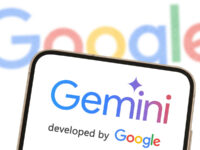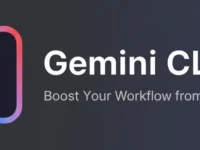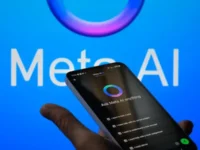Publié : 23 September 2025
Actualisé : 1 month ago
Fiabilité : ✓ Sources vérifiées
Je mets à jour cet article dès que de nouvelles informations sont disponibles.
💎 AI at the Service of Wellness
Google is integrating its Gemini AI into the Fitbit application. This virtual coach analyzes real-time health data to offer personalized programs. This isn’t the first foray of AI into the health field, but direct integration with a connected device marks a new step. Applications like Yuka already analyze food composition, and AIs assist in medical diagnosis. Gemini’s arrival on Fitbit promises more precise monitoring and advice tailored to each individual.
The Fitbit AI coach adapts to the user’s needs. It takes into account sleep, pain, and sports preferences. The goal is to provide comprehensive support, 24/7. Beyond sports programs, the AI also provides wellness advice. It can answer questions about stress or weight loss, relying on scientific data.
The rapid evolution of AI raises questions about the confidentiality and security of health data. Google assures that data is protected and used only to improve the service. The personalization of advice is at the heart of this new approach. AI has the potential to help users adopt a healthier lifestyle. However, we must remain vigilant about the use of personal data.
💎 Custom Programs
The Gemini AI creates training programs tailored to each user. It analyzes goals, preferences, and available equipment. Exercises and weekly goals are constantly adjusted based on biometric data. If the user has slept poorly, the AI adapts the program to prioritize recovery. This dynamic approach optimizes the effectiveness of workouts.
The AI is not limited to exercise planning. It also analyzes sleep quality using a new algorithm. The goal is to improve nighttime rest and adapt recommendations accordingly. This comprehensive monitoring allows for a better understanding of the user’s needs. The AI becomes a true wellness partner, available at any time.
This level of personalization is made possible by analyzing data collected by Fitbit devices and Pixel Watch. The AI processes this information to refine programs and advice. The combination of AI and wearable technology opens new perspectives for health and wellness monitoring. It will be interesting to see how this technology evolves in the coming years.
💎 Availability and Access to the Service
The AI coach will be available in October 2025 in the United States. A Fitbit Premium subscription will be required to access this service. You will also need a Pixel Watch or a compatible Fitbit bracelet. Google has not yet announced a launch date for Europe or France. This American exclusivity will allow Google to test and improve the service before an international rollout.
The Fitbit Premium subscription already provides access to advanced features such as sleep tracking and personalized training programs. The integration of the AI coach strengthens the attractiveness of this subscription. Google is relying on the combination of its AI expertise and data collected by Fitbit to offer a unique experience to users.
The arrival of the AI coach on Fitbit marks an important step in the integration of AI into our daily lives. This service could democratize access to personalized coaching and help improve the health and well-being of users. It remains to be seen how the public will welcome this innovation and what the impact will be on the market for connected devices.
“AI has the potential to revolutionize how we take care of our health.” – IActualité
💎 Conclusion
The arrival of the AI coach on Fitbit represents a significant advance in the use of AI for well-being. This service promises personalized monitoring and advice tailored to each individual. Integration with connected devices allows for precise analysis of health data. Google continues to innovate in this area, and it will be exciting to follow the evolution of this AI coach.
The future of sports and wellness coaching could be profoundly transformed by AI. The ability to analyze data in real time and offer personalized programs offers interesting perspectives. However, questions remain about data protection and the long-term impact on users’ health.
AI is becoming an essential tool for improving our daily lives. The integration of Gemini into Fitbit is a concrete example of this trend. The AI coach has the potential to democratize access to personalized support and motivate users to adopt a healthier lifestyle.
❓ Frequently Asked Questions
How does Gemini AI handle sensitive health data, particularly in cases of pre-existing conditions or specific medical treatments?
The article mentions the adaptation of sports programs. Concretely, how does Gemini adjust the intensity and duration of exercises based on biometric data such as poor sleep?
What are the consequences of constantly using an AI coach on users’ intrinsic motivation in the long term? Is there a risk of dependence on AI to manage one’s health?
The article mentions wellness advice. Does Gemini actually provide personalized information on stress or weight loss, or is it limited to generic recommendations?
🎥 Explanatory Video
Video automatically selected to enrich your reading





















0 Comments